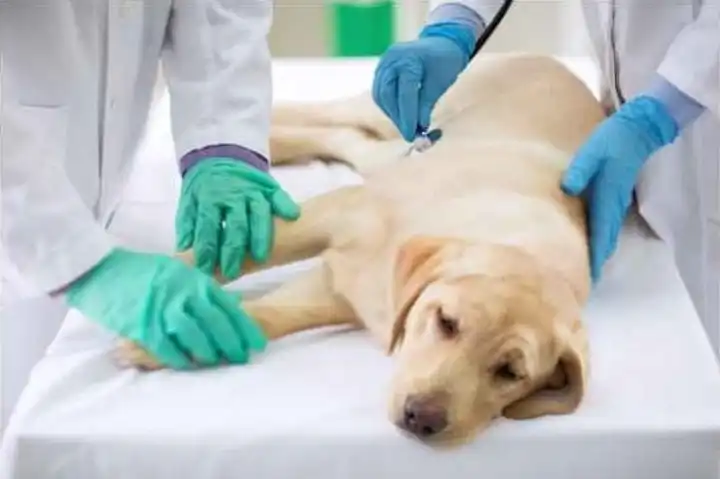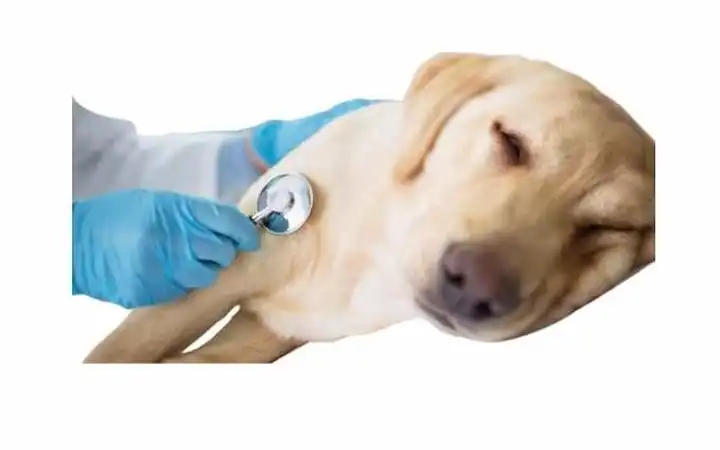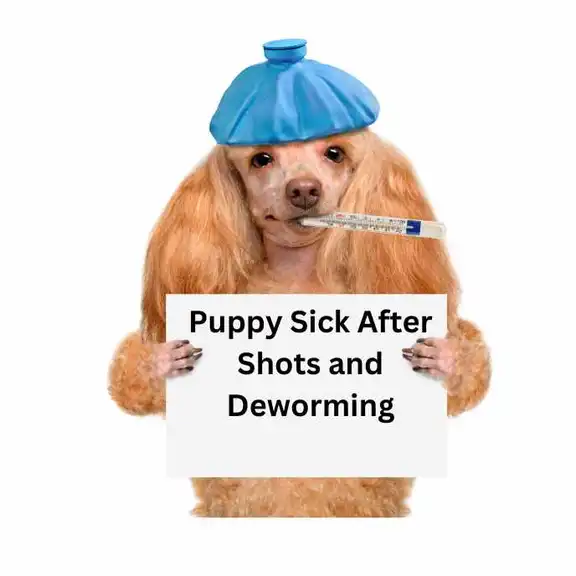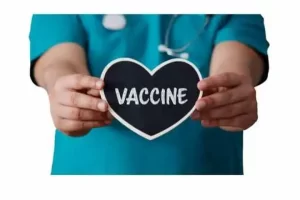Puppy Sick After Shots and Deworming: Understanding Symptoms, Treatment, Prevention, and Side Effects – As a responsible pet owner, you want to ensure your puppy stays healthy and happy. Part of that responsibility includes taking your puppy to the veterinarian for regular check-ups, vaccinations, and deworming. However, it’s common for puppies to experience some side effects after receiving shots and deworming medication. This article will explore puppy sickness after shots and deworming, including symptoms, treatment, prevention, and side effects.
Symptoms of Puppy Sick After Shots and Deworming

As a pet owner, seeing your puppy experiencing sickness symptoms after receiving shots and deworming medication can be alarming. However, it’s important to know that these symptoms are typically mild and short-lived.
Some common symptoms of puppy sickness after shots and deworming include vomiting, diarrhea, and lethargy.
According to Dr. Jennifer Coates, a veterinarian and author for PetMD, these symptoms result from the body’s immune response to vaccinations and medication. The immune system recognizes these foreign substances as a threat and activates to fight them off, causing inflammation and other symptoms.
It’s important to note that while these symptoms can be concerning, they are usually mild and resolve independently within a few days. However, if your puppy experiences severe symptoms, such as difficulty breathing, seizures, or persistent vomiting or diarrhea, it’s crucial to seek emergency veterinary care immediately.
In some cases, symptoms of puppy sickness after shots and deworming may also be related to other underlying health issues. For example, if your puppy has a weakened immune system or is suffering from an infection, it may be more susceptible to experiencing side effects. It’s important to discuss any concerns or questions you may have with your veterinarian to ensure your puppy receives the best possible care.
While it’s normal for puppies to experience some sickness symptoms after receiving shots and deworming medication, it’s important to be aware of the signs and seek veterinary care if necessary. Working closely with your veterinarian can help keep your puppy healthy and happy.
Treatment for Puppy Sick After Shots and Deworming

If your puppy is experiencing symptoms of sickness after receiving shots and deworming medication, it’s important to provide proper care and treatment. While most cases of puppy sickness after shots and deworming are mild and resolve on their own within a few days, there are steps you can take to help alleviate your puppy’s symptoms and ensure a speedy recovery.
According to Dr. Jennifer Coates, a veterinarian, and author for PetMD, one of the most important things you can do is provide your puppy with plenty of rest and hydration. Ensure your puppy has access to clean water, and encourage them to drink frequently. You may also want to offer them bland, easily digestible foods such as boiled chicken and rice to help settle their stomach.
Sometimes, your veterinarian may also recommend medications to help alleviate your puppy’s symptoms. For example, if your puppy is experiencing vomiting or diarrhea, they may recommend medications to help alleviate these symptoms and prevent dehydration. However, it’s important to never give your puppy any medications without first consulting with your veterinarian, as some medications can be harmful or even fatal to puppies.
If your puppy is experiencing severe symptoms, such as difficulty breathing, seizures, or persistent vomiting or diarrhea, it’s crucial to seek emergency veterinary care immediately. These symptoms can indicate a more serious underlying health issue and require immediate attention.
In conclusion, if your puppy is experiencing symptoms of sickness after receiving shots and deworming medication, it’s important to provide them with proper care and treatment. By working closely with your veterinarian and providing your puppy with plenty of rest and hydration, you can help alleviate their symptoms and ensure a speedy recovery.
Prevention of Puppy Sick After Shots and Deworming

To prevent puppy sickness after shots and deworming, consider the following:
Work closely with your veterinarian
- Develop a vaccination and deworming schedule tailored to your puppy’s individual needs.
- Determine the necessary treatments based on your puppy’s age, health status, and lifestyle.
Stay up-to-date on vaccinations and deworming treatments.
- Puppies are vulnerable to certain diseases and parasites, and remaining current on vaccinations and deworming can help save them.
Provide plenty of clean water and monitor drinking habits
- Ensuring your puppy stays hydrated can help prevent sickness.
Avoid over-exerting your puppy after vaccinations and deworming
- Puppies may be more prone to fatigue or discomfort during this time.
Watch for signs of illness or adverse reactions.
- If your puppy is experiencing signs such as vomiting, diarrhea, or persistent lethargy, contact your veterinarian directly for guidance on the next steps.
By operating closely with your veterinarian and following these prevention tips, you can assist in safeguarding your puppy from sickness after shots and deworming and ensure they stay healthy and happy for years.
Reference:
American Veterinary Medical Association. (2018). Pet Vaccines. Retrieved from https://www.avma.org/resources/pet-owners/petcare/pet-vaccines
Side Effects of Puppy Shots and Deworming

While vaccinations and deworming are vital for your puppy’s health, they can have effects, including:
Mild Symptoms
- Mild symptoms such as swelling, redness, or soreness at the injection site may appear after vaccination.
- Some puppies may also experience mild signs such as lethargy or a slight fever.
Allergic Reactions
- Although rare, some puppies may encounter an allergic response to the vaccine.
- Indications of an allergic response may contain problem breathing, hives, or facial swelling.
- If you detect any of these signs, reach your veterinarian directly.
Adverse Reactions
- In rare cases, puppies may encounter negative responses to vaccines or deworming treatments.
- These can include vomiting, diarrhea, or seizures.
- If you notice any of these signs, contact your veterinarian immediately.
Working closely with your veterinarian to watch your puppy for any probable side effects behind vaccinations and deworming is vital. Most side products are mild and fix quickly, but more severe responses can occur in occasional issues.
References:
American Veterinary Medical Association. (2018). Pet Vaccines. Retrieved from https://www.avma.org/resources/pet-owners/petcare/pet-vaccines
ASPCA. (2022). Deworming Puppies and Kittens. Retrieved from https://www.aspca.org/pet-care/deworming-puppies-and-kittens
Breed-Specific Concerns

Breed-specific concerns are an essential consideration when it comes to caring for your puppy after shots and deworming. While most puppies may experience mild side effects, some breeds may be more prone to severe reactions. Understanding your puppy’s breed-specific concerns is important to help them feel better and prevent future sickness.
Chihuahuas, for example, are understood for their small size and may experience more severe side effects after vaccinations and deworming. Due to their small size, chihuahuas may require smaller doses of medication and may be more inclined to allergic reactions. Additionally, some chihuahuas may be sensitive to certain ingredients in vaccines and deworming medications, which can guide to adverse reactions.
On the other hand, breeds like Dobermans may be more prone to allergic reactions due to their genetics. They may also require a different vaccination and deworming schedule than other breeds. Some breeds may also be more susceptible to certain illnesses or diseases, requiring additional vaccinations or preventive measures.
To provide your puppy is healthy and happy, it’s vital to confer with a veterinarian about your puppy’s specific breed concerns. A veterinarian can deliver personalized guidance and recommendations to help your puppy feel better and prevent future sickness. They can also suggest guidance on monitoring your puppy’s symptoms and when to seek veterinary care.
Breed-specific concerns are vital when watching for your puppy after shots and deworming. By understanding your puppy’s breed-specific concerns and consulting with a veterinarian, you can assist them in feeling better and preventing future sickness.
Vet Care

Vet care ensures your puppy’s health and well-being, especially after receiving their shots and deworming. Routine check-ups with a veterinarian can assist in catching any possible health problems before they evolve more seriously and can confirm that your puppy is up-to-date on their vaccinations and deworming.
After your puppy receives their vaccinations and deworming, closely monitoring its symptoms and behavior is vital. If you see any unusual signs or behavior, such as vomiting, runs, lethargy, or loss of desire, it’s important to contact a veterinarian immediately. These symptoms could indicate an adverse reaction to the shots or deworming medication or a sign of an underlying health issue.
In addition to monitoring your puppy’s symptoms, scheduling routine check-ups with a veterinarian are vital. During these check-ups, a veterinarian can perform a physical examination to assess your puppy’s general health and examine for possible health problems. They can also administer required vaccinations and deworming medication to save your puppy from disease.
Read Also: How Much Are 8 Week Puppy Shots? Everything You Need to Know
Furthermore, a veterinarian can provide personalized advice and recommendations on how to care for your puppy, including feeding, exercise, and training. They can also offer guidance on how to prevent typical health issues and how to address any behavioral problems that may arise.
Vet care is crucial to ensuring your puppy’s health and well-being, especially after they have received their shots and deworming. By watching your puppy’s symptoms, scheduling routine check-ups with a veterinarian, and following their guidance and recommendations, you can allow your puppy to lead a happy and healthy life.
Conclusion
Puppy sickness after shots and deworming can be concerning, but it’s typically mild and short-lived. By understanding the symptoms, treatment, prevention, and side effects, you can assist in maintaining your puppy healthy and happy. If you have any problems or inquiries about your puppy’s health, please contact your veterinarian for advice and guidance.



